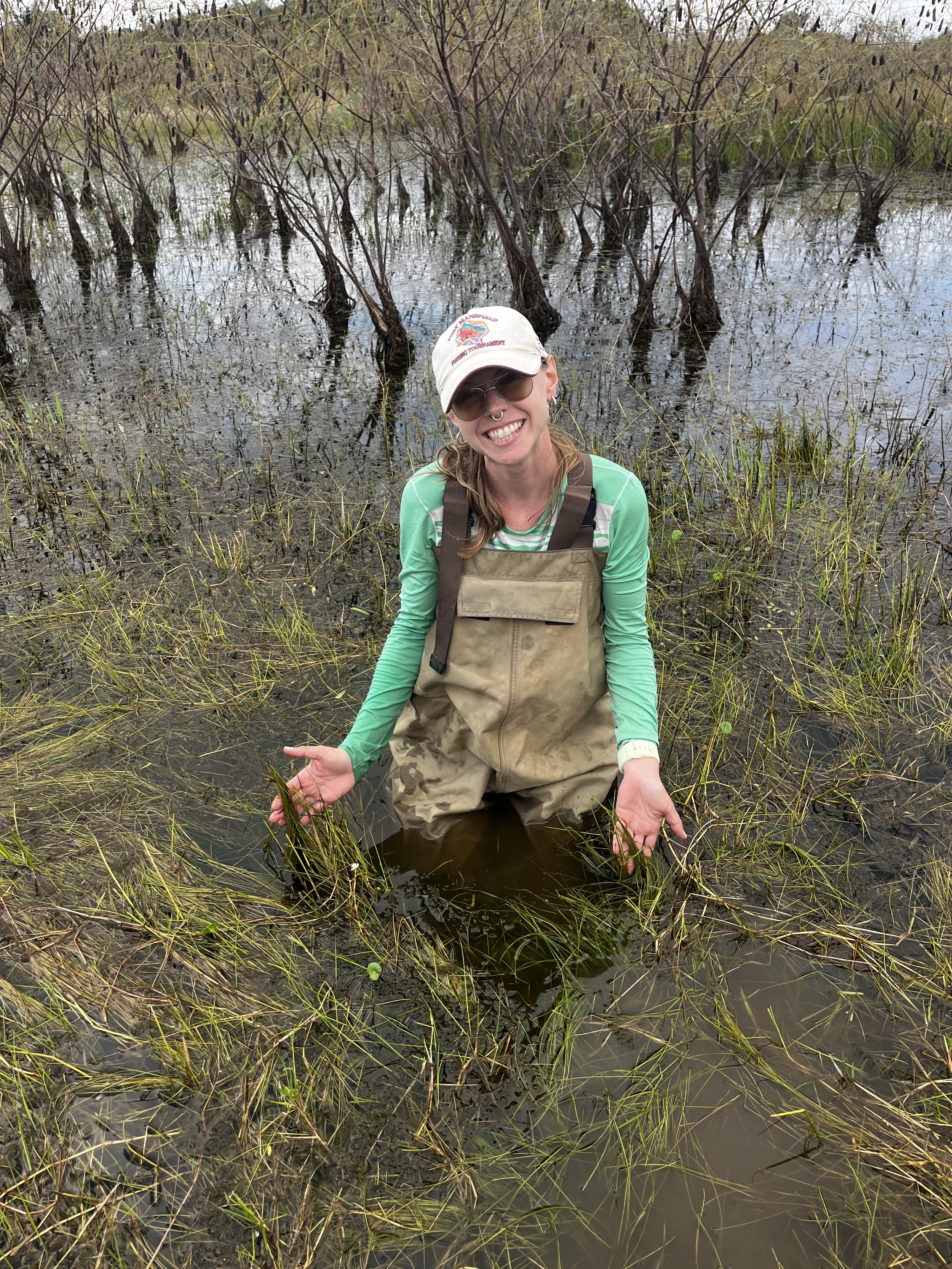-
Take your multivariate analysis skills to the next level by building upon the professional understanding and capability attained in MECA I. This course takes you through the defensible ten-step process for performing, interpreting, and communicating defensible analyses for the most widely used free ordination techniques (PCA, NMS, NMS Scores), classification procedures (Cluster Analysis, TWCA), group testing tools (MRPP, PerMANOVA, SumF, ISA), association assessments (Mantel Test, Compare Scores), and trait analyses (functional diversity metrics, FCA). Plus, the strengths and weaknesses of other commonly encountered tools (e.g., RA, DCA, TWINSPAN, PCoA, dbRDA) are explored, tips are given on how to apply and interpret graphing tools to ordination diagrams, and the procedure for bootstrapping multivariate analyses is outlined.
-
Learn at your your own pace with or without instructor support (see Online Course Format Chart below for details).
Winter: December 1, 2025 – February 22, 2026 (Early bird ends November 2)
Spring: March 2-May 24, 2026 (Early bird ends February 1)
*Early bird saves $75
-
MECA I. If taking the PREMIUM version for the professional certificate program, and you have previously taken Jeri Peck’s MECA I course or “Multivariate Data Analysis, Using PC‑ORD” short-course, or Bruce McCune’s “Community Structure and Analysis” course, you can request to take the MECA I final exam to test out of this prerequisite for a fee.
-
Learn on your own and at your own pace over the 3-month term as you watch 37 prerecorded lectures, read up on the covered topics in the required textbook (see below), and watch and perform 19 practice exercises using the PC-ORD software. After each lesson, take a brief knowledge-check quiz before moving on.
Required Textbook (covers MECA I & II): Peck, J.E. 2016. Multivariate Analysis for Ecologists: Step-by-Step, second edition. https://www.wildblueberrymedia.net/store/step-by-step
Required Software (covers MECA I & II): PC-ORD version 7, which was written by and for ecologists applying multivariate analyses. A discounted purchase price for a perpetual license has been negotiated for our students. https://www.wildblueberrymedia.net/store/pc-ord-7-single-user-license-student-user
-
TOPICS
Free ordination methods:
principal components analysis
principal coordinates analysis
nonmetric multidimensional scaling
NMS scores
Agglomerative clustering
Choosing the optimal level of clustering
Group‐testing methods:
multi‐response permutation procedures, blocked MRPP
distance-based MANOVA
SumF
Indicator Species Analysis, blocked ISA
Trait-based analyses:
Functional Diversity
Fourth Corner Analysis
Advanced graphing and communication tools
Bootstrapping
LEARNING OBJECTIVES
After taking this course, students will be able to:
Choose among PCA and NMS to address analysis objectives
Choose among MRPP, PerMANOVA, and SumF to address analysis objectives
Recognize when to apply trait-based analyses
For PCA, PCO, NMS, NMS Scores, clustering, MRPP, PerMANOVA, SumF, ISA, Mantel Test, Compare Scores, Functional Diversity, and Fourth Corner Analysis
recognize their strengths and weaknesses
understand their analysis steps
perform the basis analyses using appropriate setup options
interpret the analysis output
Apply a variety of approaches to objectively ‘cut’ a dendrogram
Use output and graphs to present and report findings
Bootstrap (especially PerMANOVA)
COURSE OPTIONS & INFORMATION (Review chart above, then click below)
-
FORMAT:
3 months of access to course materials as you work at your own pace
CONTINUING EDUCATION:
16 CEUs with The Wildlife Society
4 CEUs in Category I(a): Scientific Education and Training with the Ecological Society of America
Go to our Continuing Education Page for more details
-
FORMAT:
3 months of access to course materials as you work at your own pace
Get instructor support for the 3-month term via email, discussion threads, group meetings, and one-on-one appointments
After working through the course materials, set up an optional meeting with the instructor to discuss your own personal project from work or school
CONTINUING EDUCATION:
16 CEUs with The Wildlife Society
4 CEUs in Category I(a): Scientific Education and Training with the Ecological Society of America
Go to our Continuing Education Page for more details
CERTIFICATIONS:
Earn 1 credit toward certification as an Associate/Certified Wildlife Biologist® (at any level) with The Wildlife Society
-
FORMAT:
12 months of access to course materials as you work at your own pace
Get instructor support for the 3-month term via email, discussion threads, group meetings, and one-on-one appointments
After working through the course materials, set up an optional meeting with the instructor to discuss your own personal project from work or school
CONTINUING EDUCATION:
16 CEUs with The Wildlife Society
4 CEUs in Category I(a): Scientific Education and Training with the Ecological Society of America
Go to our Continuing Education Page for more details
CERTIFICATIONS:
Earn 1 credit toward certification as an Associate/Certified Wildlife Biologist® (at any level) with The Wildlife Society
Earn 1 credit towards a professional certificate in Applied Quantitative Ecology with CWS
ACADEMIC CREDIT:
Earn 1 academic credit (go to our Academic Credit Page for details)
Earn an additional 1-2 academic credits with an Applied Project
PRIMARY INSTRUCTOR
"These courses are amazing. Dr. Peck's incredibly consistent and logical approach to teaching multivariate ecological community analysis provides both theoretical and practical foundations for more than a dozen multivariate procedures. I had no experience with these types of analyses before taking Dr. Peck's MECA courses through CWS, but I was able to quickly apply what I've learned to my own datasets. I highly recommend these courses!"
Joshua Morris
Urban Conservation Manager at Birds Connect Seattle
"Taking MECA I and II with Dr. Peck helped me understand the logic behind many statistical methods, which was extraordinarily helpful for my progress in my dissertation research. I'm studying plant communities and the examples in this course were highly relevant to my work. Dr. Peck was always ready to assist and is highly knowledgeable. I'm grateful for the opportunity to improve my skills while gaining a solid understanding of how, why, and when certain analysis techniques are appropriate or not. I couldn't recommend these courses more. Thank you, Dr. Peck and CWS!"
Bria Marty
SCHOLARSHIPS
Full scholarships are available to participants from countries designated as “lower income” and “lower middle income” in the World Bank List of Economies. Please see our CWS World Scholars Program page for details.
CANCELLATION POLICY
Cancellations 30 days or more before the start date are not subject to cancellation fees. Cancellations <30 days before the start date are subject to a 50% cancellation fee. No refunds once the course begins.





